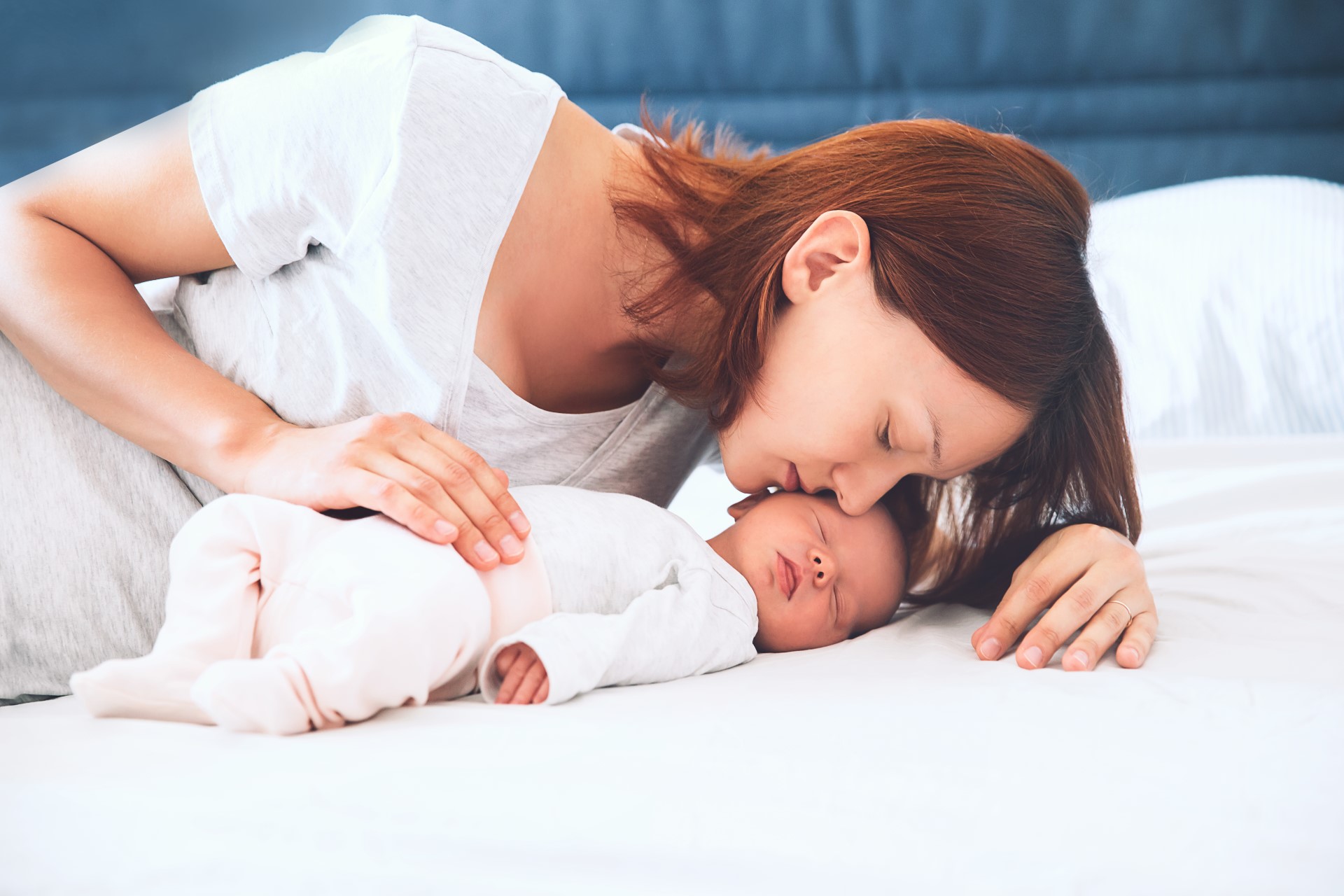Mental health support and tips for new mums

Helen Bowden, maternity expert at Tinies, highlights some important aspects of maternal mental health and tips on how to take care of yourself after giving birth.
May marks Maternal Mental Health Awareness month, a moment for us to remember that the perinatal period is a time of significant risk to women's mental health, with nearly 1 in 5 women suffering from some form of mental health challenge.
During the perinatal period, women can be affected by a range of issues such as antenatal and postnatal depression, obsessive-compulsive disorder, post-traumatic stress disorder (PTSD) and postpartum psychosis (although this is very rare).
Having supported women who have experienced some or all of these psychopathologies, but most commonly, postnatal depression, this has become my field of expertise.
Spotting the signs
Postnatal depression is very different to the 'baby blues'. The 'baby blues' is a commonly used term referring to a short term dip in the mother's mood soon after birth, caused by all the new changes and hormonal shifts that come with a new baby and doesn't last longer than two weeks.
Postnatal depression usually starts around 4-6 weeks up to 1 year after birth, and the symptoms last longer. It is essential to recognise the common symptoms early, either by yourself or by someone close to you.
According to the NHS website, the main symptoms may include:
- a persistent feeling of sadness and low mood;
- loss of interest in the world around you and no longer enjoying things that used to give you pleasure;
- lack of energy and feeling tired all the time;
- trouble sleeping at night and feeling sleepy during the day;
- feeling that you're unable to look after your baby;
- problems concentrating and making decisions;
- loss of appetite or an increased appetite (comfort eating);
- feeling agitated, irritable or very apathetic (you "can't be bothered");
- feelings of guilt, hopelessness and self-blame;
- difficulty bonding with your baby with a feeling of indifference and no sense of enjoyment in their company;
- frightening thoughts – for example, about hurting your baby; these can be scary, but they're very rarely acted upon;
- thinking about suicide and self-harm.
If you are experiencing any of these symptoms or loved ones have recognised these behaviours in you, it is crucial that you seek help as soon as possible. It is vital to remember that postnatal depression is very treatable and has an excellent recovery rate with the right support. You can speak with your GP or your Health Visitor or Practise Nurse but most importantly, tell those around you how you feel.
Self-care tips for new mums
There are lots of tips out there on how to manage maternal mental health but, in my experience, I have found these to be the best:
- Getting adequate sleep, good nutrition and exercise have a massive impact on the way we feel. But having a new baby can interfere with all of these. Try and nap when your baby sleeps during the day and rest when you can.
- It's essential to be realistic with your expectations of yourself; it's good to be "good enough". If friends and family offer help, then ask them to help prepare healthy meals for you.
- Be kind to yourself by reading about maternal mental health and understanding why you're feeling like this. Be aware of how common it is and that it's normal to not feel yourself after having a baby.
- Look after yourself and prioritise self-care, whether it's finding the time to watch a programme you like or reading a book. It's important to reconnect with who you are.
- Join parent groups such as baby yoga or walking with strollers' group; it's good to be honest, talk openly with others, and gain social support. Don't feel bad about feeling bad, and keep the conversation going about how you are feeling with those around you.
- You may wish to discuss with your GP different types of medications that can help or have professional counselling. Whatever route you choose, it's vital to get the proper treatment or engage in the right behaviours that feel comfortable for you and your baby.
Remember, there is no shame in these feelings and a little progress each day adds up to big results.
Helen Bowden, Tinies Maternity Expert
In 2019, Tinies became part of the Bright Horizons® family. Tinies Maternity is their dedicated maternity branch helping families find the right maternity solutions.
Helen began her career as a General Nurse over 20 years ago in Glasgow before completing her Post Graduate degree in Health Visiting and a post-graduate certificate at Masters Level in Psychotherapy.
A Health Visitor for over fifteen years, she is also a qualified Postnatal Depression Trainer to other Health Visitors, helping them identify issues and support families. Whether you need a maternity nurse, a night nanny, or simply someone you can talk to about how you feel, Helen can help.
Get in touch - maternity@tinies.com
07717 530 716
https://www.tinies.com/parents/send-childcare-requirements/
More mental health support resources;
Visit the NHS website for more information on maternal mental health:





